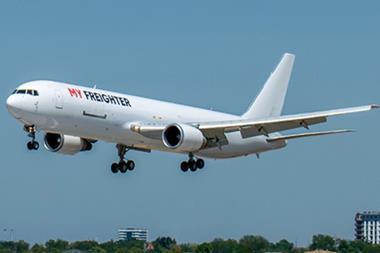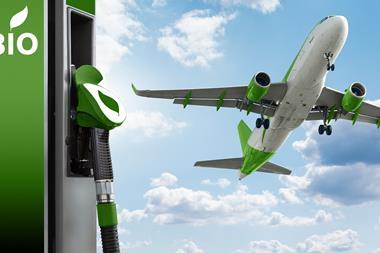Air cargo demand helped Korean Air eke out an operating profit of W7.6bn ($6.5m) in the third quarter — its second consecutive profitable quarter since the coronavirus struck — but its overall revenue was down more than half from a year earlier.
The W7.6bn operating result for the three months ended September 30 is 94% below the third quarter of 2019, before the coronavirus pandemic.
Revenue for the quarter fell 53% to W1.55trn, while expenses fell 51% to W1.54trn.
Revenue for passenger km’s fell 91% from a year earlier, but freight tonne kms rose 59%. The airline said that cargo demand has remained strong, and it has been able to increase cargo capacity through the use of passenger aircraft for cargo services.
Korean’s net loss, however, widened to W386bn from W118bn a year earlier.
“The aviation industry continues to suffer from the pandemic, and the outlook is still bad,” said chief executive Walter Cho.
“We were able to achieve a second profitable quarter due to our strong cargo operations and the sacrifices of our employees.”
Its outlook for the fourth quarter is bleak, with passenger demand continuing to fall. This, however, will be partially offset by cargo demand, which is entering peak season.
“In particular, high demand is forecasted for traditional air cargo such as semiconductors, auto parts and e-commerce supplies,” said Korean.
“The air cargo business will also benefit from urgent medical supply demand regarding Covid-19 and the lack of marine transportation availability, such as container ships.”
The airline also notes that Covid-19 vaccines are in development globally and that distribution is likely in 2021. It has a task force to examine the requirements for transporting the vaccine, such as storage and handling equipment, and adds that it is “working closely” with pharmaceutical and logistics companies.















